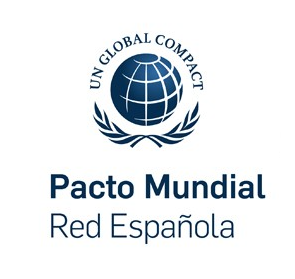UN GLOBAL COMPACT

The UN Global Compact: A Global Commitment to Corporate Sustainability
The UN Global Compact is the largest corporate sustainability initiative worldwide. Established in 2000, its goal is to align the strategies and operations of companies with ten universal principles related to human rights, labour standards, environmental protection, and anti-corruption. Moreover, it encourages businesses to actively participate in achieving the UN’s Sustainable Development Goals (SDGs).
This initiative includes over 25,000 participants, including companies and organisations from more than 160 countries. Through the Global Compact, companies voluntarily commit to continuously improving their practices and reporting their annual progress in relation to the established principles.
The Ten Principles of the UN Global Compact
The Global Compact is based on the following principles:
- Human Rights:
- Support and respect the protection of internationally proclaimed human rights.
- Ensure they are not complicit in human rights abuses.
- Labour Standards:
- Uphold the freedom of association and the right to collective bargaining.
- Eliminate forced and child labour.
- Promote equal opportunities and eliminate discrimination in employment.
- Environment:
- Adopt a precautionary approach to environmental challenges.
- Encourage initiatives that promote greater environmental responsibility.
- Develop environmentally friendly technologies.
- Anti-Corruption:
- Work against all forms of corruption, including extortion and bribery.
Impact of the Global Compact on the Corporate Sector
Participation in the Global Compact offers businesses the opportunity to enhance their reputation and build trust among customers, investors, and employees. Companies not only seek to improve their internal processes but also influence their supply chains to comply with these principles, contributing to a more ethical and responsible business ecosystem.
One of the key aspects of the Global Compact is its relationship with the Sustainable Development Goals (SDGs). Businesses play a crucial role in achieving the 17 SDGs set by the UN, covering key areas such as poverty eradication, gender equality, access to quality education, climate action, and reducing inequalities. Through this collaboration, the Global Compact aims to accelerate progress towards a more sustainable, just, and inclusive world.
Global and Local Network
The Global Compact operates at both global and local levels. This means that companies have the opportunity to collaborate within a global network while also benefiting from local networks that provide specific support and knowledge tailored to each region or country. In Spain, the Spanish Network of the Global Compact is one of the most active and largest in the world, with hundreds of companies committed to sustainability and the SDGs.
Benefits for Companies Involved
Joining the Global Compact offers several key benefits for businesses:
- Reputation and trust: Companies that participate in the Global Compact are perceived as responsible and ethical, which can enhance their image among consumers and business partners.
- Access to resources and knowledge: Participating companies gain access to tools, studies, and advice on how to integrate the Global Compact principles into their daily operations.
- Improved risk management: By addressing issues such as human rights and sustainability, businesses can mitigate risks related to reputation, regulations, and consumer expectations.
- Collaboration opportunities: The Global Compact facilitates the creation of partnerships between businesses, non-governmental organisations, and governments to work on joint solutions to global challenges.
Commitment and Transparency
One of the core pillars of the Global Compact is transparency. Participating companies must submit annual reports called Communication on Progress (COP), where they detail their advancements in implementing the Ten Principles and the SDGs. This communication is public and allows stakeholders (employees, consumers, investors) to assess the company’s performance in terms of sustainability and social responsibility.
Major Spanish Companies Involved
Numerous Spanish companies have joined the Global Compact, committing to work under these principles and contribute to the SDGs. Among them are Inditex, Telefónica, Banco Santander, Iberdrola, and CaixaBank. These companies have implemented significant initiatives to reduce their carbon footprint, improve labour conditions in their supply chains, and promote social inclusion.
The Global Compact and the Future
The Global Compact continues to evolve in response to emerging global challenges. As the world faces crises such as climate change, social inequality, and corruption, the role of businesses becomes increasingly crucial. The Global Compact is not only a platform to drive positive change but also provides companies with the opportunity to be part of the solution to the most pressing global issues.
In summary, the United Nations Global Compact is a vital initiative for fostering sustainability and social responsibility in the corporate sector. Through the implementation of the Ten Principles and the promotion of the SDGs, participating companies actively contribute to creating a fairer, more inclusive, and sustainable world for present and future generations.